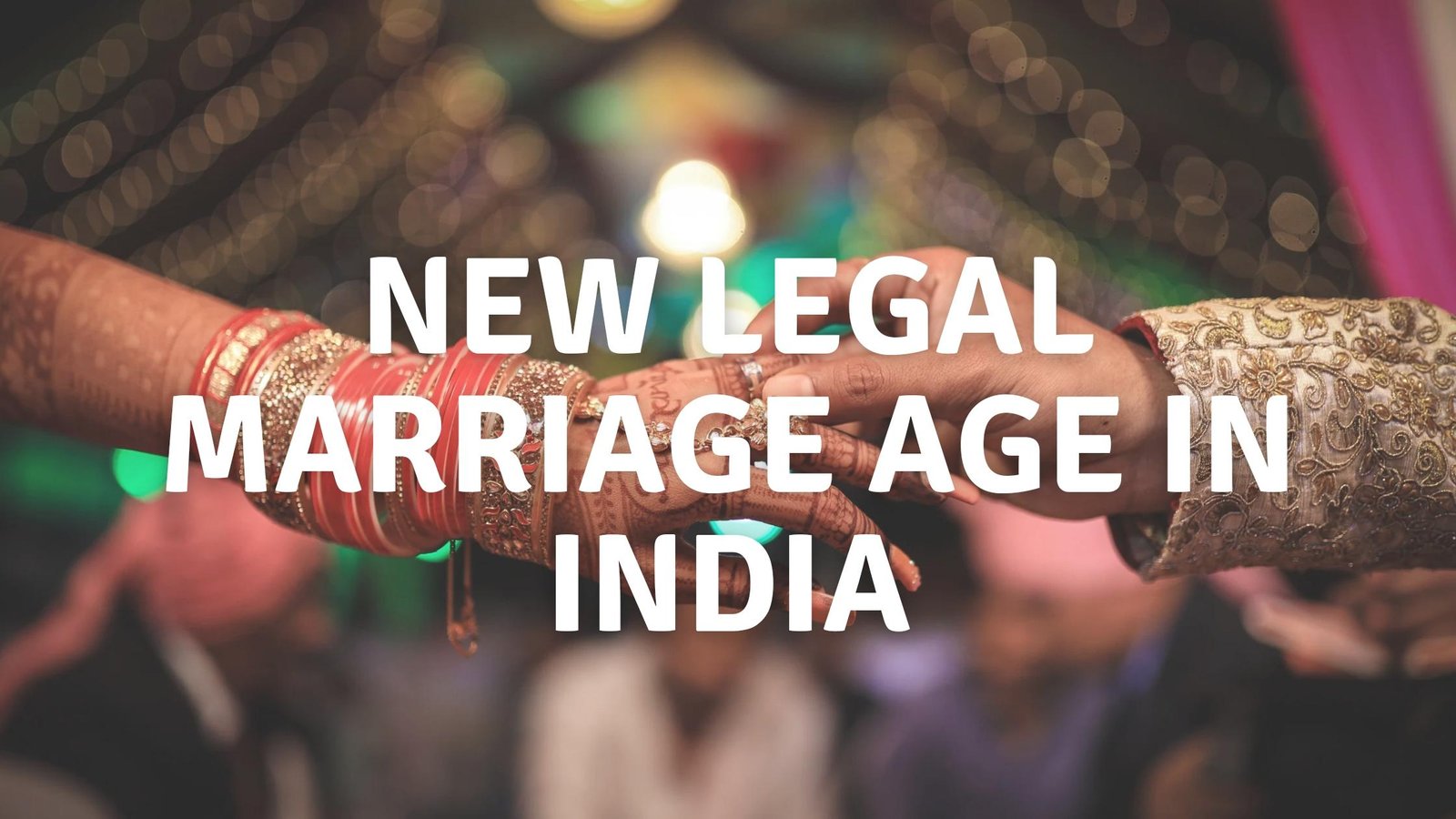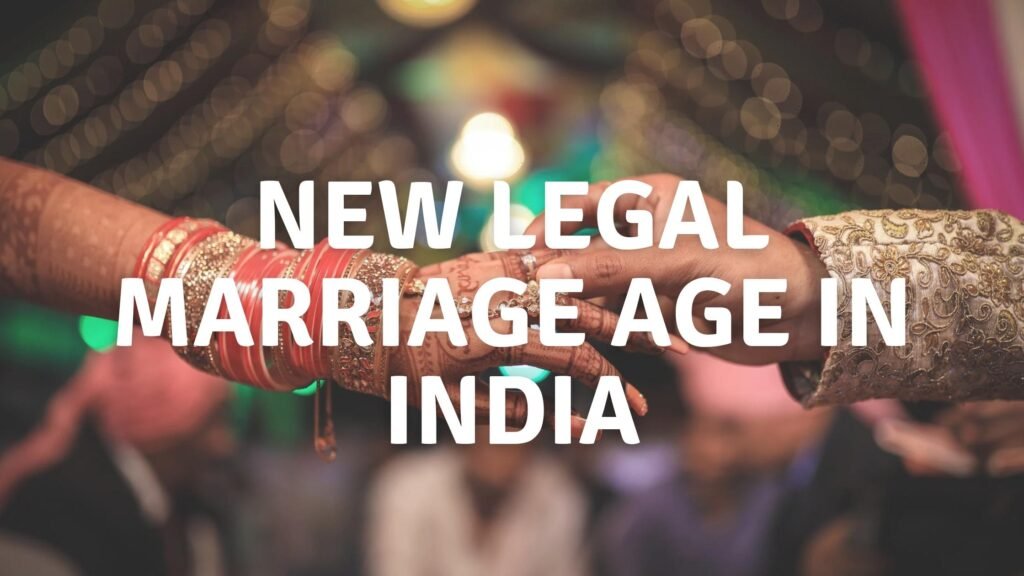
What Is The New Legal Marriage Age In India?
Marriage is an important event, marking the beginning of a new chapter. However, the legal aspects surrounding marriage, particularly the minimum marriage age, have been subject to debate and reform in many countries, including India. To those unaware, the Indian government has recently introduced changes to the legal marriage age for women, aiming to address issues related to gender equality and social justice. In this article, we will get into the new legal marriage age in India, the reasons behind this change, and its potential impact on society.

What is the New Legal Marriage Age for Women in India?
As of December 2021, the Indian government proposed a landmark change to the legal marriage age for women. Previously, the legal age for women to marry was 18 years, while for men it was 21 years. The new proposal seeks to raise the minimum legal age for women to 21 years, aligning it with the legal marriage age for men. This change was recommended by a task force led by Jaya Jaitly, which was established by the Ministry of Women and Child Development to review and suggest reforms related to the age of marriage for women in India.
The proposed amendment to the Prohibition of Child Marriage Act 2006 aims to bring uniformity in the legal marriage age for both genders, addressing the disparities that have existed for decades. The amendment is expected to impact various laws, including the Special Marriage Act 1954 and the Hindu Marriage Act 1955.
Why was the Legal Marriage Age Changed?
It happened because of several factors, including health, education, and gender equality.
- The government’s primary motivation is to improve the health and well-being of women, as early marriages often lead to early pregnancies, which can pose significant health risks to both the mother and child. As per NFHS, a significant percentage of women in India are married before the age of 18, leading to higher maternal mortality rates and health complications.
- Additionally, raising the marriage age is seen as a step toward promoting gender equality. The previous disparity in the legal marriage age between men and women was viewed as discriminatory, reinforcing traditional gender roles that prioritize men’s readiness for marriage over women’s. By setting the same legal age for both genders, the government aims to create a more equitable society where women have the opportunity to pursue education and career opportunities before marriage.
- Furthermore, the change is also intended to curb the practice of child marriage. By raising the legal marriage age, the government hopes to delay the age of marriage, giving young women more time to complete their education and become financially independent.
How will the New Legal Marriage Age Impact Society?
The impact of raising the legal marriage age in India is expected to be far-reaching, affecting various aspects of society. One of the most significant outcomes is likely to be the increase in educational attainment among women. With an additional three years before marriage, young women will have more time to complete their higher education, thereby enhancing their career prospects and financial independence. This change is anticipated to lead to a more educated female workforce, which can contribute positively to the economy.
In addition to educational benefits, the new legal marriage age may also lead to improved health outcomes for women and children. Delaying marriage and childbirth is associated with lower maternal and infant mortality rates, as well as better overall health for both mothers and their children. This could result in a healthier population and reduced healthcare costs for the country.
However, the success of this reform will depend on its effective implementation. In rural and economically disadvantaged areas, where child marriage is still prevalent, changing the legal age alone may not be sufficient. The government will need to ensure that there are adequate resources and programs in place to educate communities about the benefits of delaying marriage and to provide support for young women who wish to pursue education and employment opportunities.
What are the Challenges in Implementing the New Legal Marriage Age?
While the new legal marriage age for women in India is a progressive step, its implementation may face several challenges.
- One of the primary challenges is the deep-rooted cultural and social norms that support early marriage. In many communities, marriage is seen as a way to secure a woman’s future and reduce the financial burden on her family. Changing these entrenched beliefs will require comprehensive awareness campaigns and community engagement efforts.
- Another challenge is the enforcement of the new law. Despite existing legislation against child marriage, the practice continues in various parts of the country. Ensuring compliance with the new legal marriage age will require strict monitoring and enforcement mechanisms. The government will need to collaborate with local authorities, non-governmental organizations (NGOs), and community leaders to ensure that the law is effectively implemented and that violators are held accountable.
- Moreover, there is a concern that raising the legal marriage age may lead to an increase in cases of elopement and illegal marriages, as young couples may choose to marry without their families’ consent. To address this issue, the government will need to provide accessible legal avenues for young adults to marry legally, as well as support services for those who may be at risk of forced or child marriages.
Final Words
The decision to raise the legal marriage age for women in India to 21 years marks a progressive step toward achieving gender equality, improving health outcomes, and empowering women through education. This change has the potential to significantly alter the societal landscape significantly, giving young women the opportunity to pursue their dreams before entering into marriage. However, the effectiveness of this reform will largely depend on how well it is implemented and the extent to which cultural and social challenges are addressed.
For people and families navigating these legal changes, seeking professional legal guidance can be crucial. If you need expert advice or support in understanding the implications of the new legal marriage age or any other legal matters, Innerwork Advisors are here to help.
Also Read: How To Apply For A Legal Heir Certificate Online And Offline






